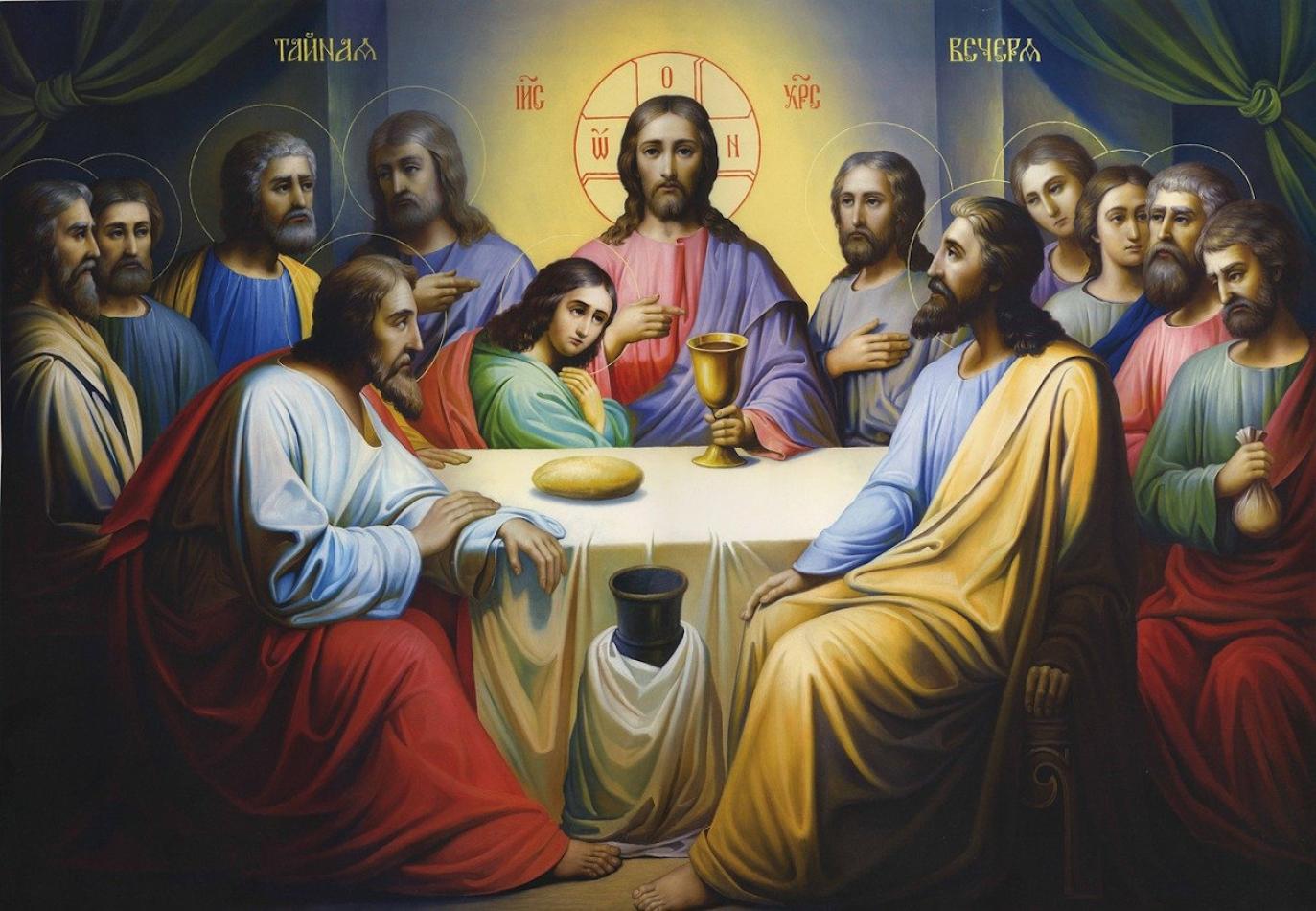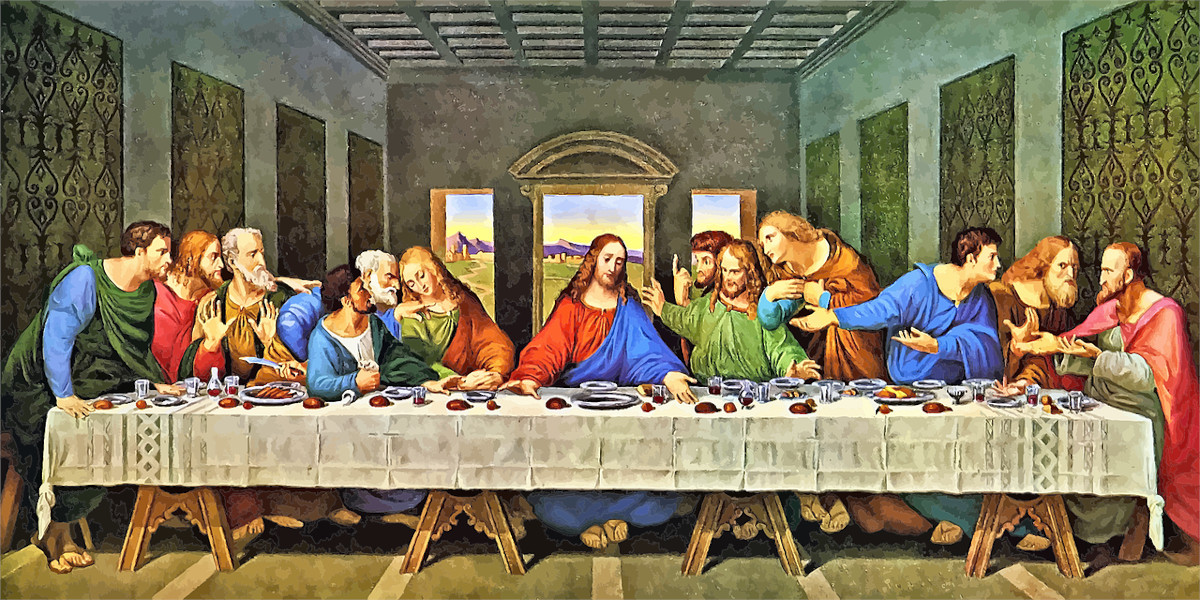Daniel Comboni
Comboni Missionaries
Institutional area
Other links
Newsletter
November 2024
The proposal of this theme, truly captivating and even ‘challenging’, in the sense of demanding, ambitious, arduous, complex... – “Becoming what we are – Living the Combonian charism in community” – seems to us the most suitable to conclude this series of reflections, because the call to be ‘an Cenacle of Apostles’ – as Comboni wanted, because Christ himself wanted it – must mark the environment, the style, the atmosphere, the method, the goal and the very soul of our ‘living the mission’. [Photo Pixabay]
Becoming What We Are
Living the Comboni Charism in Community
The Guide to the Implementation of the XIX General Chapter (2022), in compliance with the Chapter mandate on ongoing formation, asked the coordinators of the Centre for Ongoing Formation (Cfp) to dedicate 2023 [defined as the ‘Year of Initiation’] ‘to spirituality and, in particular, to reflection and prayer on the Word of God’. For the two-year period 2024-2025, the ‘Process Outline’ period, he proposed the following task: ‘In the two-year period 2024-2025, ongoing formation will focus on the themes of missionary identity and community life, and will be coordinated and accompanied by the General Secretariat of Formation’.
The Secretariat of Formation immediately acted, proposing to the Centre for Ongoing Formation to devise a programme and to prepare and divulge subsidies that would facilitate reflection and discussion in the communities on the themes suggested by the Implementation, publishing them, with a certain regularity, as ‘inserts’ of the Familia Comboniana.
The first insert, in February 2023, invited the communities to “Set out to become ‘branded’ people for mission”. In December 2023, the insert on the Word followed: “From reading the signs of the times to the gift of self in Mission”.
In the run-up to Easter, in February 2024, the insert entitled “The Word – A School of Ongoing Community Formation for a Renewed Missionary Journey” presented Popular Bible Reading as a method of approaching the biblical text in which life and the Bible are at the centre, in a virtuous circle in which they are related and refer to each other, allowing the Bible to speak to each person and through each person.
In preparation for the Solemnity of Pentecost, in April 2024, the insert “Mission lived in the Holy Spirit who animates it” was presented, which was followed in June by a short subsidy on the theme of “The Heart of Jesus, Source and Goal of the Mission”.
This last insert-subsidy, which focuses on the theme of community, was prepared by Father David Glenday, to whom our ‘thank you’ from the heart’. The proposal of this theme, truly captivating and even ‘challenging’, in the sense of demanding, ambitious, arduous, complex... – “Becoming what we are – Living the Combonian charism in community” – seems to us the most suitable to conclude this series of reflections, because the call to be ‘an Cenacle of Apostles’ – as Comboni wanted, because Christ himself wanted it – must mark the environment, the style, the atmosphere, the method, the goal and the very soul of our ‘living the mission’.
The coming months invite us to embrace the conclusions of the Synod on Synodality (‘For a Synodal Church – Communion, Participation and Mission’) and to enter the Jubilee Year 2025 (whose motto is “Pilgrims of Hope”) with hope with the sentiments expressed in the following passage from the Letter to the Hebrews: “Since we are surrounded by so great a cloud of witnesses, let us also lay aside every weight, and sin which clings so closely, and let us run with perseverance the race that is set before us, looking to Jesus, the pioneer and perfecter of our faith” (Heb 12,1b-2).
This reflection is best preceded by a prayerful reading of any one of the four Gospel accounts of Jesus’ last evening with his disciples in the Upper Room, the night before he suffered. The Cenacle starts there.
Cenacle, certainly! But which?
When we Comboni Missionaries find ourselves talking about our Founder and community life, it is not unusual for us to say things like: Comboni said our Institute is a Cenacle of Apostles, or perhaps, Comboni insisted that we should be such a Cenacle. In fact, though, it is well worth paying closer attention to what Comboni actually did say.
In chapter 1 of his 1871 Rules of the Institute for the Missions of Africa, we find this: “The Institute… becomes like a little Cenacle of Apostles” (Writings, 2648), and we note three little but potentially powerful words: ‘becomes’, ‘like’, ‘little’. Taken together, these words bespeak a deeply dynamic vision and experience of the Comboni community; they bespeak a journey, a growth in humility, discretion, patience, perseverance, a process – a community-in-becoming.
Our three precious words suggest that the question Comboni encourages us to ask about our community life is not so much regarding the degree to which we correspond to the ideal, but rather with what heart we are making this journey together. And the fascinating and encouraging thing is that if we turn to the Cenacle of the Gospels, as it is presented on the eve of Jesus’ Passion and Death, it is the very same question that is posed.
Cenacle – Journeying with Jesus
The four evangelists – and in them, of course, the Holy Spirit himself – could hardly have offered us a clearer portrait of a more radically fragile community than the community of Jesus in the Cenacle. We find blatant ambition (“Which of us is to be regarded as the greatest” (Cf Lk 22,24b), profound deafness (“Lord, I am ready to go with you… to death” – Lk 22,33; “Lord, I will lay down my life for you” – Jn 14,27), tragic betrayal (“One of you will betray me” – Mk 14,18) and blind presumption (“They began… to say to him, one after another, “Surely, not I!?” – Mk 14,19; “Judas, who betrayed him, said, ‘Is it I, Master?’” – Mt 26,25a), and all these brought into the sharpest relief in the context of Jesus’ total self-giving. And yet, this seriously unsatisfactory community, this Cenacle of weak persons, this is Jesus’ community.
Jesus’ community is thus evidently not the community which here and now corresponds to his vision and project, but is rather that community where he is present patiently accompanying a community-in-becoming.
And so, again, the question is: where is Jesus present among us, forming us into a Cenacle of Apostles? And how may I help him in this? It is a question of discerning and deciding, a very dynamic vision.
Jesus Creating Cenacle
For us the more readily to discern and decide, the Gospels offer us a very rich portrait of Jesus forming us to become Cenacle. He does this:
- by calling and gathering us. We are in the Cenacle because he wants us there, and our companions have been given us by him: there can be no enduring Cenacle without this radical faith;
- by starting, and continually re-starting, from where he finds us. He waits for us with boundless patience, and does not disdain to lead us again and again through the process of becoming his community;
- by remaining with us no matter what: his fidelity and forgiveness are the bedrock and hope of our community journey. Gratitude for this gives the joy of being together;
- by motivating us with mission: be one, he says, so that the world may believe. Hence the vital importance of keeping the eyes of our heart wide open on what is happening in our world;
- by praying for us: he lives forever to make intercession for us (Heb 7, 25). The Blessed Trinity, the Beloved Three, are fully committed to and involved in our community journey;
- and, above all, by giving himself for us. My confrere is a brother “for whom Christ died” (1Cor 8, 11), and for us, too, in the end, community-building is a radically demanding matter of love.
So: here and now, in this very human and hence fragile missionary community where it has fallen to me to live, where do I discern the presence of Jesus calling, gathering, waiting, remaining, praying, forgiving, and what response do I decide by his grace to offer?
In this humble, gradual, patient way, little by little, our Comboni community has the joy of being – becoming! – that “luminous spot sending… rays of light that bring warmth as well as illumination… and reveal the nature of the Centre from which they spread out” (Writings, 2648).
Rome, 13th October 2024
Father David Glenday, mccj





